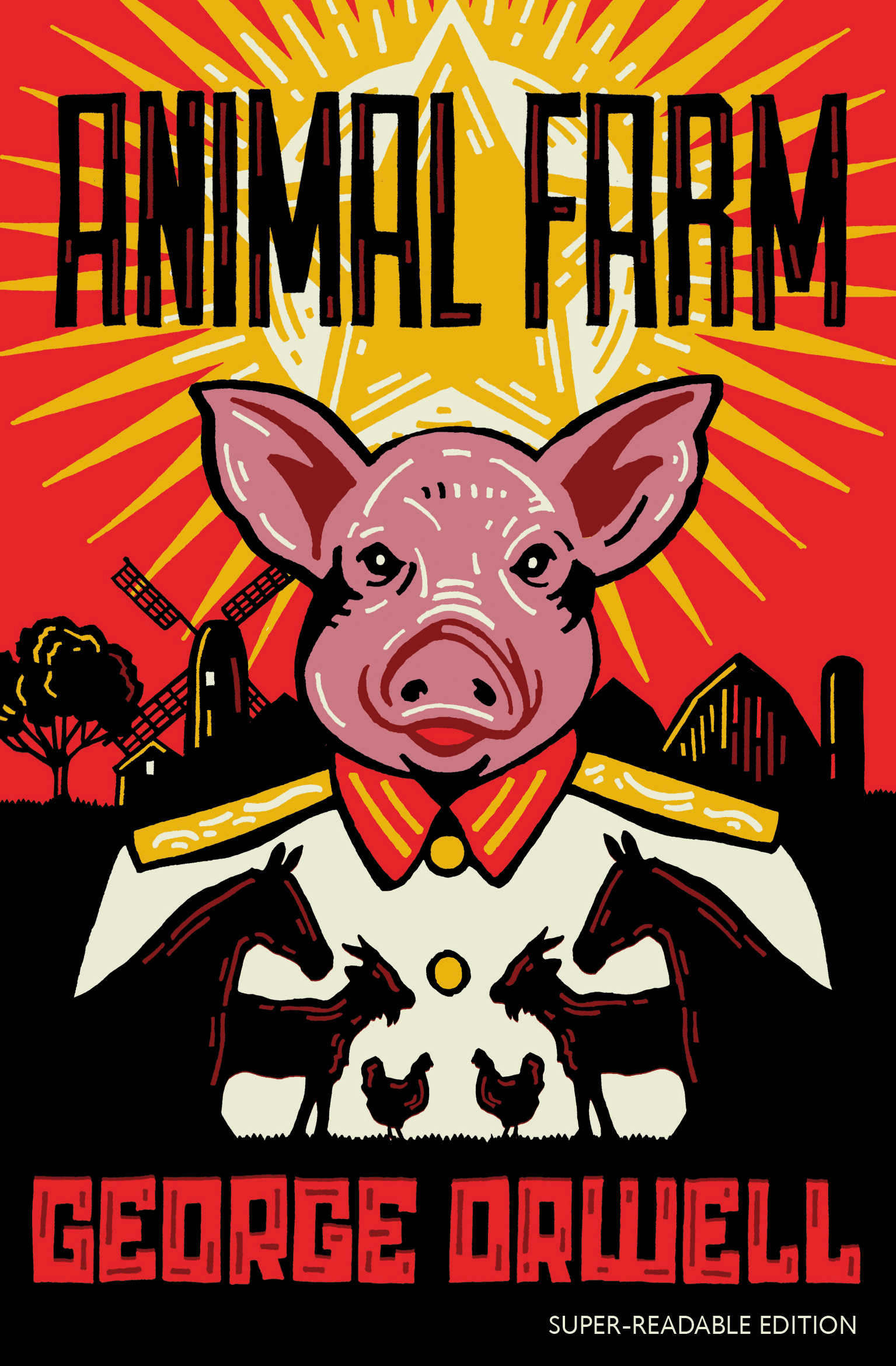
“Animal Farm” is a novel written by George Orwell, published in 1945. The book is an allegory that critiques the Soviet Union and the events leading up to World War II. It tells the story of a group of farm animals who rebel against their human farmer and establish their own society. However, as time goes on, the pigs who have taken control of the farm become increasingly tyrannical and oppressive, leading to a situation that is even worse than the one they had rebelled against.
The book begins with Old Major, a prize-winning boar, giving a speech to the animals on Manor Farm, urging them to rise up against their human oppressors. The animals are initially hesitant, but after the farmer Mr. Jones forgets to feed them, they break into the food stores and begin to see themselves as capable of running the farm on their own. The pigs, led by Snowball and Napoleon, take charge of the rebellion, and the humans are driven off the farm.
Initially, the animals are united in their vision of creating a just and equal society. They establish a set of commandments, known as the Seven Commandments, which are meant to guide their behavior and prevent any animal from taking advantage of another. However, as time goes on, the pigs begin to accumulate more and more power, using their intelligence and charisma to manipulate the other animals. Snowball, who had been a leader of the rebellion, is chased off the farm by Napoleon and his supporters, leaving Napoleon in complete control.
As Napoleon consolidates his power, he begins to break the Seven Commandments, changing them to suit his needs. The pigs begin to live in luxury while the other animals work harder and harder, with less and less to show for it. Napoleon also creates a secret police force, led by the vicious dogs he had raised from puppies, to enforce his rule and punish any dissenters. The other animals, who are increasingly oppressed and miserable, begin to question whether the rebellion was worth it.
The book culminates in a dramatic scene where the pigs hold a meeting with neighboring human farmers, where they declare that they are no longer animals but are now “human” in their behavior and their goals. The other animals watch in horror as they realize that they have been tricked into supporting a new form of tyranny, one that is even worse than the old system they had rebelled against.
“Animal Farm” is a powerful critique of totalitarianism and the dangers of blindly following leaders who promise a utopian vision. The book shows how easily good intentions can be corrupted by power and how those in power will do anything to maintain their control. The animals, who had fought for freedom and equality, are ultimately oppressed by their own leaders, demonstrating the perils of revolutions that do not take into account the corrupting influence of power.
The book’s enduring popularity is a testament to its relevance to contemporary politics, as well as its powerful storytelling and vivid characters. Through the animals on the farm, Orwell offers a cautionary tale about the dangers of authoritarianism, and a reminder of the importance of vigilance and critical thinking in the face of those who would seek to control us.
